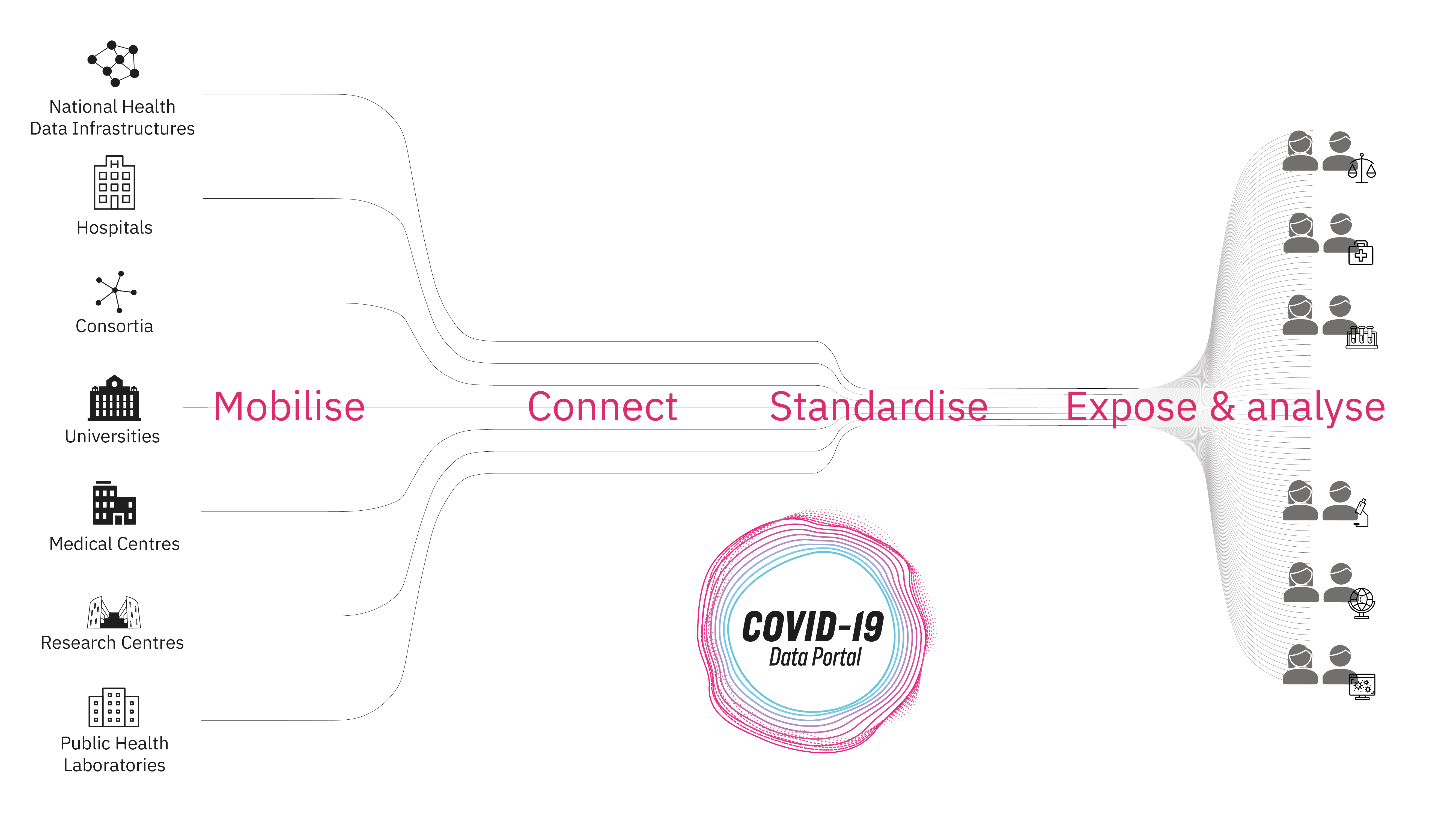Today marks the launch of a new €12 million Horizon Europe funded project, BeYond-COVID (BY-COVID), which will tackle the data challenges that can hinder effective pandemic response. The core aim of the project is to ensure that data on SARS-CoV-2 and other infectious diseases can be found and used by everyone.
The COVID-19 pandemic continues to affect many lives globally, and it is crucial for us to reflect back on how the scientific community initially responded to the crisis, and what technical gaps there were that hindered the ability of scientists to investigate SARS-CoV-2 at the early stages of the pandemic. There has been a strong response across the world, with many nations generating and sharing vast amounts of data and locally tracking variants. Learning from this past experience, and also by monitoring the present day developments of the COVID-19 pandemic we can develop resources, data standards and guidelines that will enable rapid application to novel emerging threats, and specifically unite and coordinate dispersed datasets from different institutes and countries.
Niklas Blomberg, BY-COVID Coordinator and Director of ELIXIR, spoke of the need to work across scientific communities in pandemic preparedness: “It is fundamental that we learn and build on the experiences of the COVID-19 pandemic, to ensure that, from a data perspective, there are no hindrances to rapid access to infectious disease data. The BY-COVID project is a fantastic opportunity to build on the existing infrastructure of the COVID-19 Data Platform, providing opportunities for new knowledge to be generated by integrating data from new disciplines to create a strong foundation for future effective pandemic response”
BY-COVID will build and expand upon the successful COVID-19 Data Platform, a resource initiated in the early stages of the pandemic and led by EMBL-EBI. Since its launch, many countries have established their own national data hubs, which ensures that data produced locally can be instantaneously connected and shared with the main COVID-19 Data Portal. Rather than focus purely on providing technical solutions to the biological data, BY-COVID will work with partners such as the Versatile emerging infectious disease Observatory (VEO) and the Public Health Information Research Infrastructure (PHIRI) to incorporate data from a broader range of disciplines, including public health and social sciences.

The BY-COVID project strives to simplify data access and reuse through four key ‘pillars’:
- Mobilise data - ensuring raw sequencing data from across the world can be easily submitted to core data hubs (e.g. SARS-CoV-2 Data Hubs, European Nucleotide Archive (ENA), Federated European Genome Archive (FEGA), CESSDA social science archives, and BBMRI biobank directory).
- Connect data - build the technical capacity to allow linking of sequence data and metadata - expanding beyond scientific and medical data to broader metadata from for example public health and economics. Support integration to the COVID-19 Data Portal.
- Standardise data - provide recommended data management protocols to encourage Findable, Accessible, Interoperable and Reusable (FAIR) data standards and interoperability among resources.
- Expose and analyse data - support exposure and analysis of FAIR data on infectious diseases such as the regular VEO reports on mutations and variation in publicly shared SARS-CoV-2 data and the open COVID-19 Galaxy analysis platform.
BY-COVID is an exciting interdisciplinary project that unites life science, medical, policy, social science and public health experts from across Europe. Led by ELIXIR, the project has 53 partners from 20 European countries. The BY-COVID project will run for three years and is part of the European Commission’s HERA Incubator plan ‘Anticipating together the threat of COVID-19 variants’.

